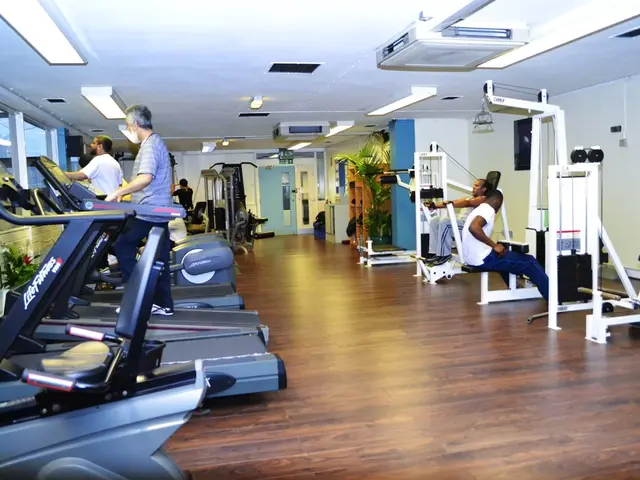Sick Days Galore: Care Workers Are Sick More Frequently than Other Professionals
Healthcare Workers Suffer Illnesses at Higher Rates Compared to Employees in Other Sectors. - Healthcare Workers in the Nursing Sector Experience Higher Illness Rates Compared to Other Professionals
It turns out that care workers in the Mecklenburg-Vorpommern region are calling in sick more often than the average Joe. According to TK (Techniker Krankenkasse) data, they took an average of 32.6 days off last year, which is significantly higher than the national average of 28.5 days and leagues above the overall average of 24.6 days across all professions.
Regional TK director, Manon Austenat-Wied, shed some light on the matter, stating, "Care workers' absences are still significantly higher than in other industries." She further emphasized the importance of fostering a healthy and supportive work environment to boost the profession's appeal, particularly given the invaluable and irreplaceable role care workers play in our aging society.
A study conducted by TK involved evaluating work incapacity certificates of 103,000 care workers insured with TK in the region. As one of the largest statutory health insurers in Mecklenburg-Vorpommern, TK boasts around 224,000 insured persons in the region.
The care sector is no stranger to staffing issues. According to the Ministry of Health, over 21,000 care workers are employed in more than 1,000 long-term care facilities and services in Mecklenburg-Vorpommern. With over 120,000 individuals needing care, the number of which continues to climb, retaining specialists and ensuring adequate care services, even in rural areas, is crucial. Previously, care facilities have closed due to staff shortages. The region has initiated the "Pact for Care" to combat these challenges, starting in autumn 2023.
While the exact reasons for the high sickness rate among care workers in Mecklenburg-Vorpommern remain undisclosed, it's no secret that this profession presents unique physical and emotional challenges. Care work frequently involves physically demanding tasks, emotional stressors, increased exposure to infections, and a less than ideal work environment, all of which can contribute to health issues. For more specific insights regarding Mecklenburg-Vorpommern, consult reports or studies directly from TK or similar organizations.
- To address the high sickness rate among care workers and create a more conducive work environment, regional TK director Manon Austenat-Wied suggests implementing "community policy" that focuses on "workplace-wellness".
- Given the physically demanding nature of care work and the potential "medical-conditions" that may arise, invest in "vocational training" to equip care workers with skills to improve their fitness, exercise, and nutrition, promoting better health and wellness.
- To attract and retain care workers, regional authorities should advocate for policies that prioritize the care sector by investing in "vocational training" programs, providing opportunities for workers to adapt and thrive in their roles, while ensuring a healthy and supportive work environment.








